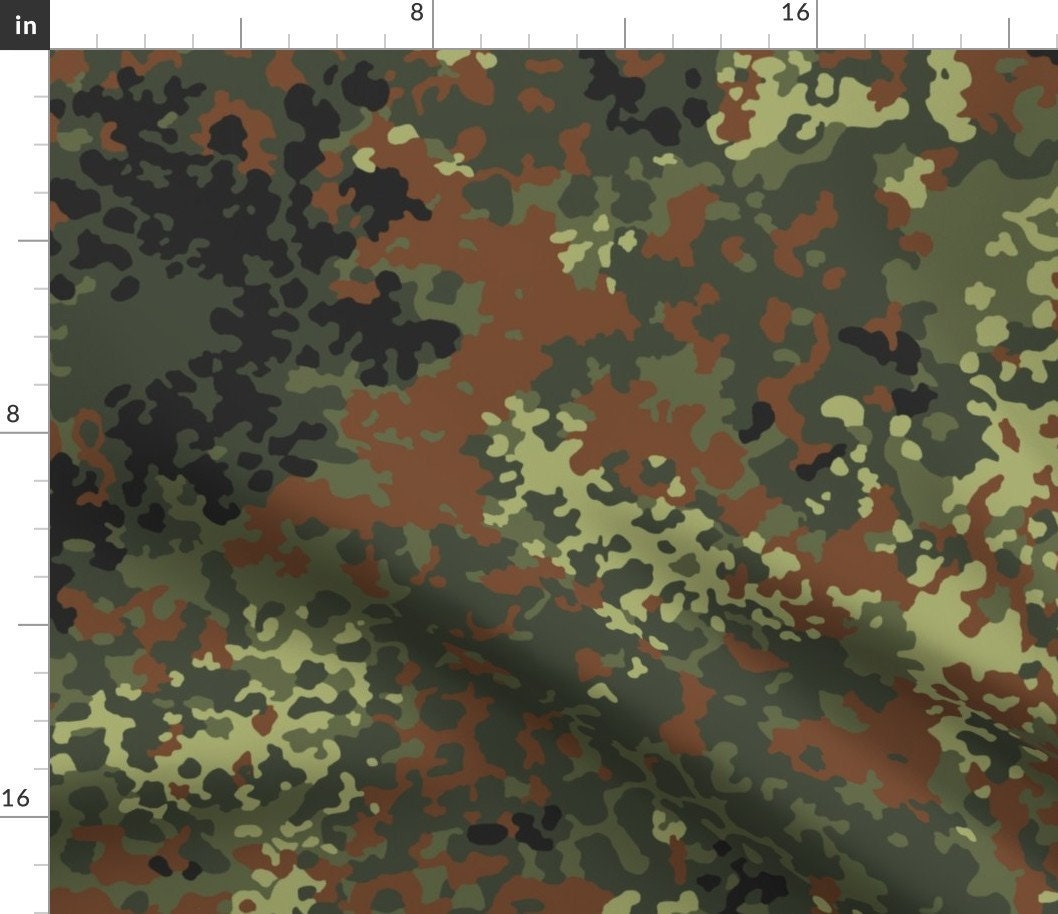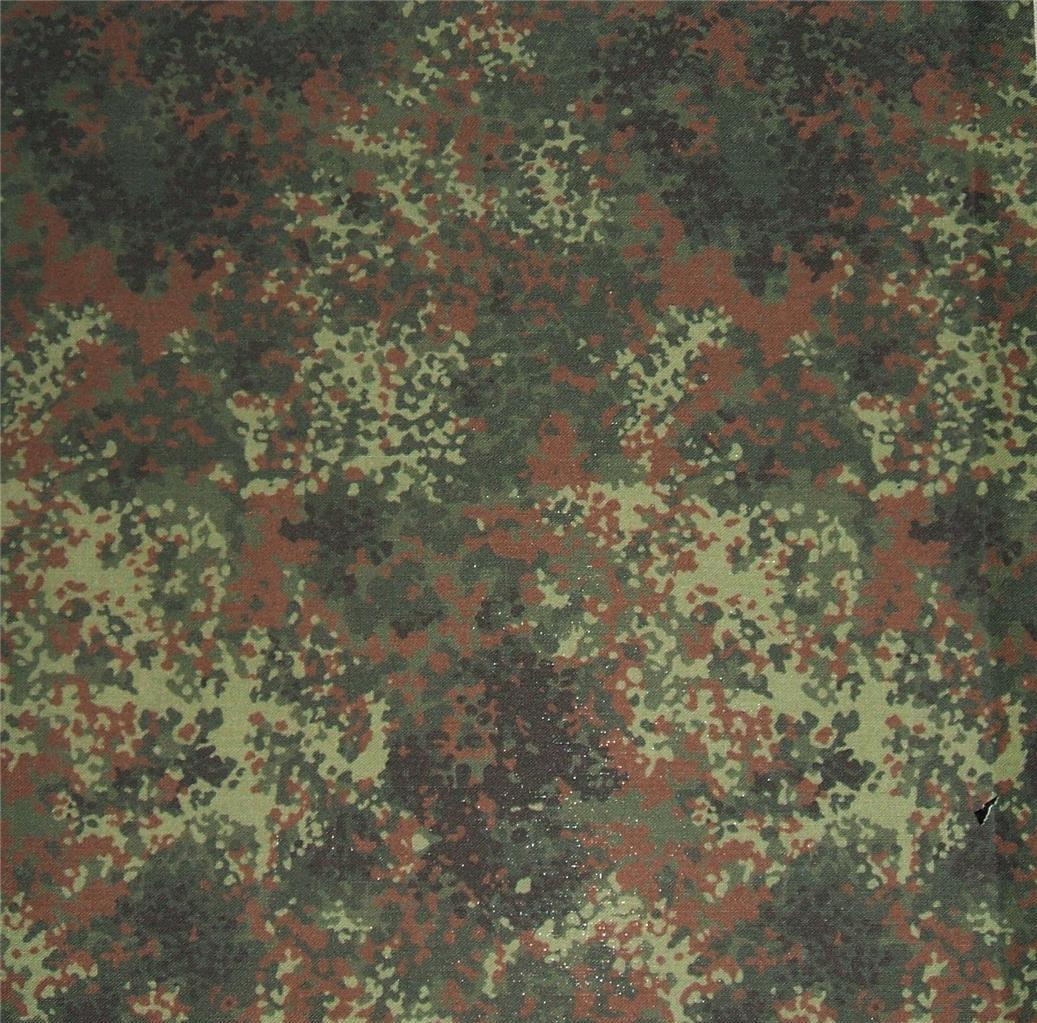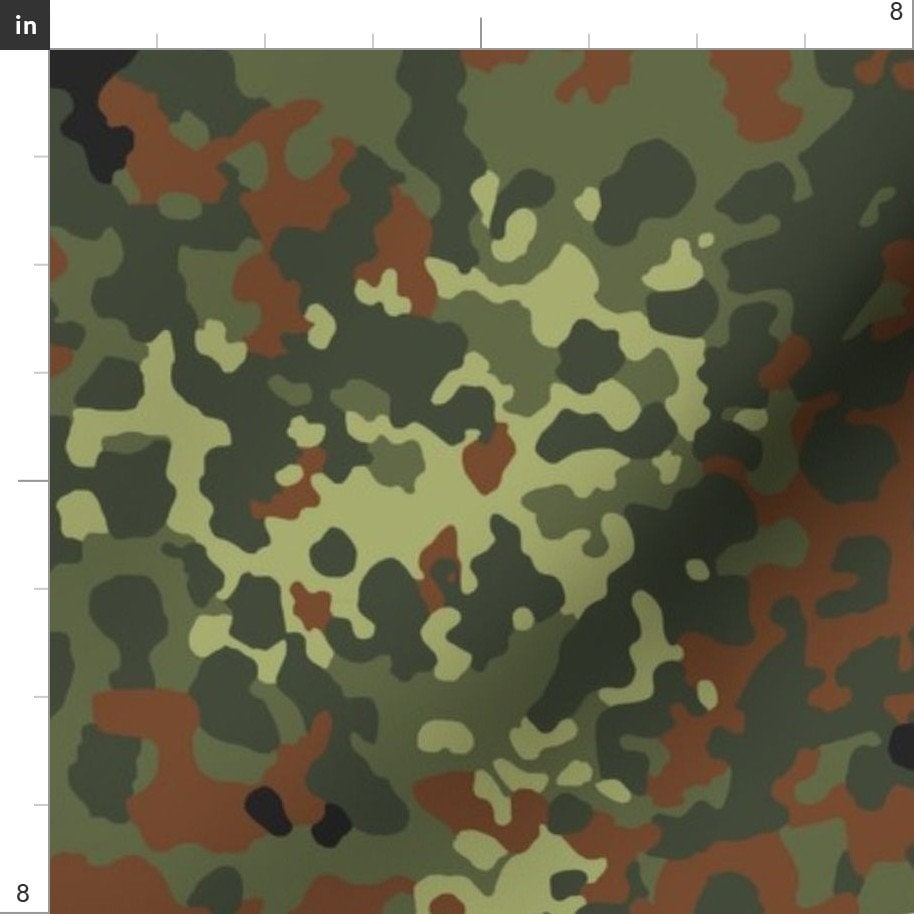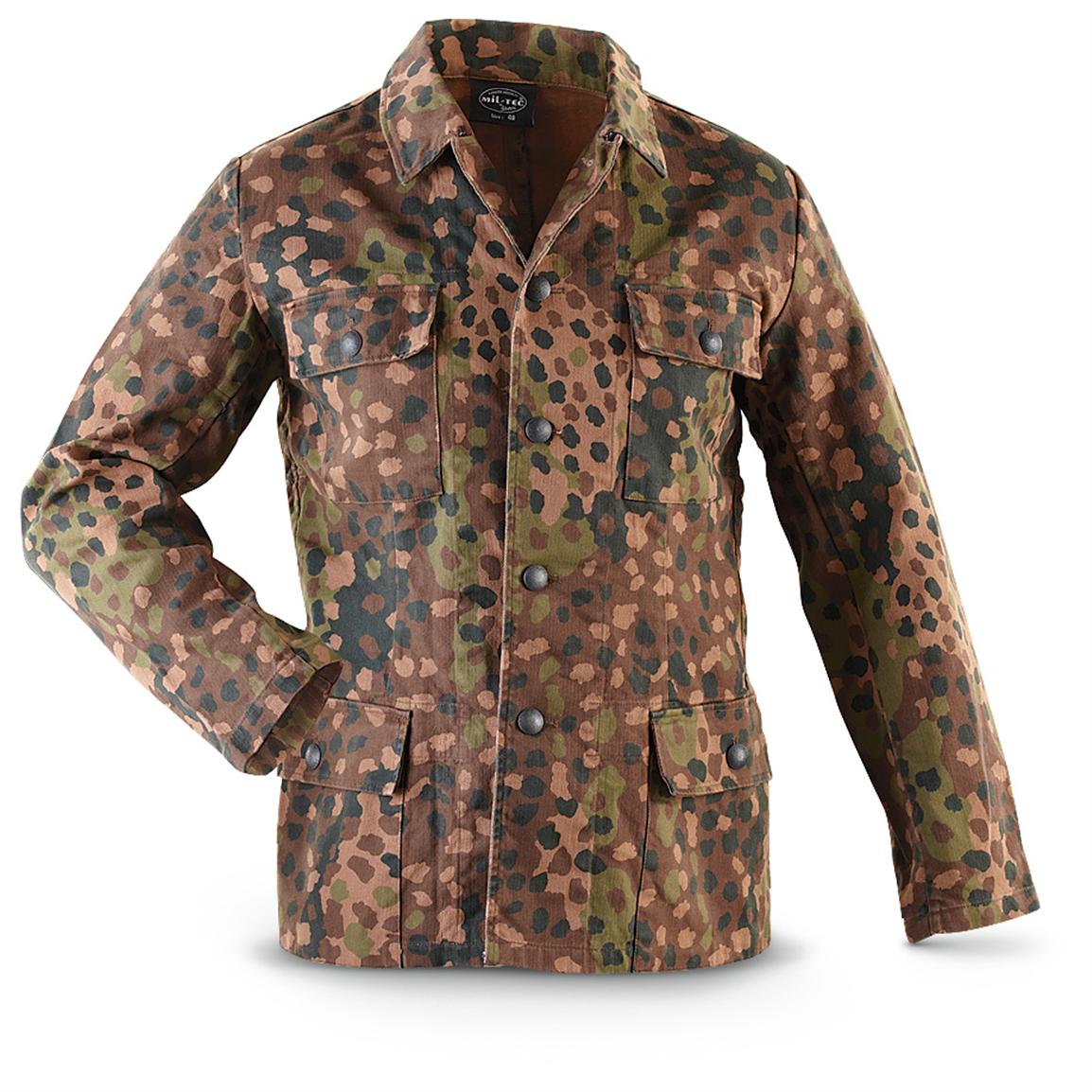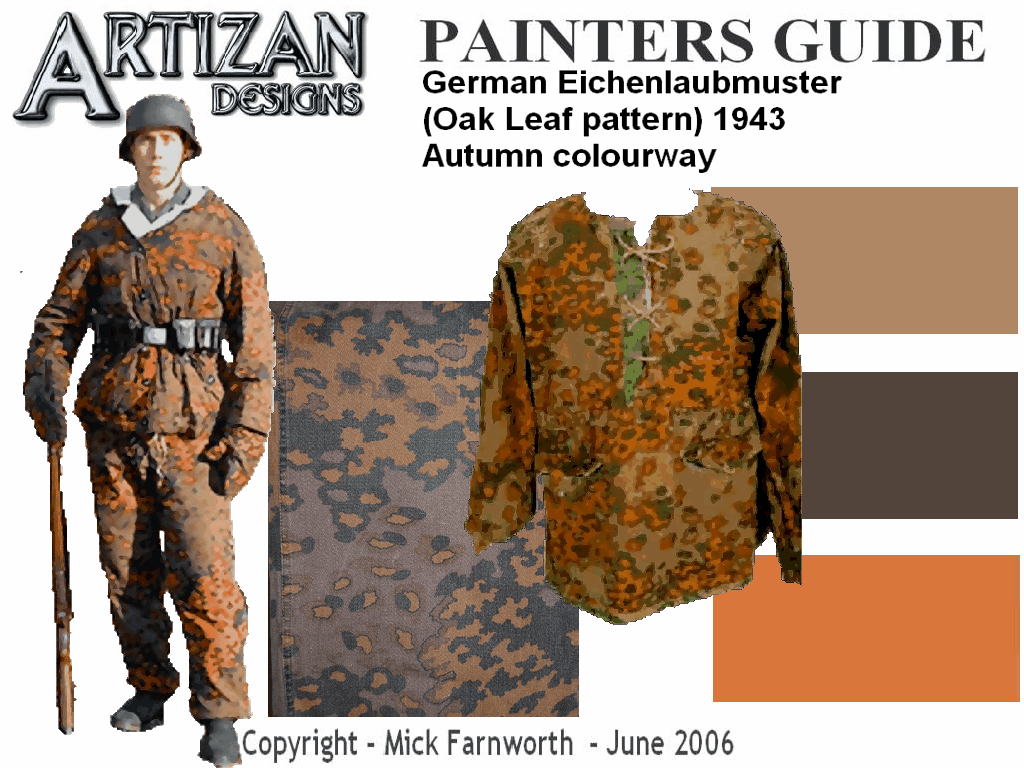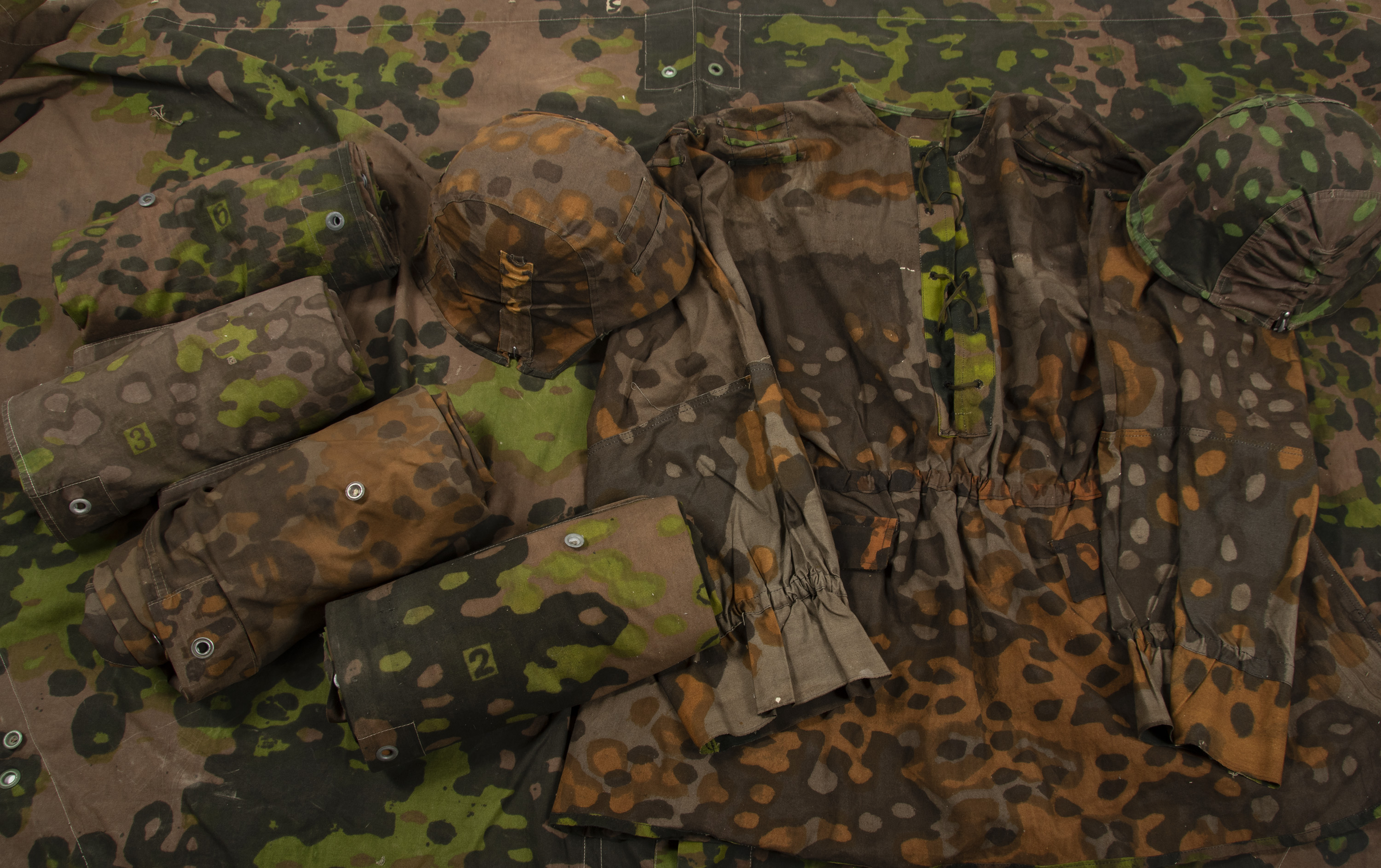German Camo Pattern
German Camo Pattern - Web german world war ii camouflage patterns formed a family of disruptively patterned military camouflage designs for clothing, used and in the main designed during the second world war. Web east german camouflage patterns. The first pattern, splittertarnmuster (splinter camouflage pattern), was designed in 1931 and was initially intended for zeltbahn shelter halves. Vehicle base colours were permanently applied at the factory, and factories were the first to implement any base colour changes. The camouflage patterns described below mainly apply to armored vehicles. Textile patterns for uniforms have multiple functions, including camouflage, identifying friend from foe, and esprit de corps. The pattern’s unique use of spots eliminates hard boundaries between its various colours, making it extremely effective in temperate woodland terrain. Web german world war ii camouflage patterns formed a family of disruptively patterned military camouflage designs for clothing, used and in the main designed during the second world war. Web german world war ii camouflage patterns formed a family of disruptively patterned military camouflage designs for clothing, used and in the main designed during the second world war. The first pattern, splittertarnmuster (splinter camouflage pattern), was designed in 1931 and was initially intended. Web both before and during the second world war, german armor camouflage went through a series of changes. Web military camouflage is the use of camouflage by armed forces to protect personnel and equipment from observation by enemy forces. German camouflage is one of the most popular categories of militaria both in the collector market as well as among reenactors/ living historians. Web east german camouflage patterns. Web german 5 color lozenge camouflage scheme by mark miller. The first pattern, splittertarnmuster (splinter camouflage pattern), was designed in 1931 and was initially intended for zeltbahn shelter halves. Starting from 1932, all units received some camouflaged items. Web german world war ii camouflage patterns formed a family of disruptively patterned military camouflage designs for clothing, used and in the main designed during the second world war. Web german army uniform camouflage patterns (comprehensive guide)support: Textile patterns for uniforms have multiple functions, including camouflage, identifying friend from foe, and esprit de corps. The camouflage patterns described below mainly apply to armored vehicles. Web east german camouflage patterns. The ww1 german lozenge patterns are some of the most interesting and distinctive camouflage schemes ever devised and it always seemed strange to me that there were so many different interpretations of the colors. If you’re collecting realistic military reproductions, field gear, or uniforms for. Web east german camouflage patterns. If you’re collecting realistic military reproductions, field gear, or uniforms for the purposes of reenactment, it’s helpful to be familiar with some of. A french pattern, reputedly dating to 1935, also incorporated splintered elements, but lacking the rain strait theme. Web the original ww2 german splinter camouflage patterns are seen here. Web military camouflage is. Web german world war ii camouflage patterns formed a family of disruptively patterned military camouflage designs for clothing, used and in the main designed during the second world war. The first pattern, splittertarnmuster (splinter camouflage pattern), was designed in 1931 and was initially intended for zeltbahn shelter halves. Web the two original covers used for our patterns. This pattern is. Starting from 1932, all units received some camouflaged items. The first pattern, splittertarnmuster (splinter camouflage pattern), was designed in 1931 and was initially intended for zeltbahn shelter halves. Vehicle base colours were permanently applied at the factory, and factories were the first to implement any base colour changes. The first pattern, however, splittertarnmuster (splinter camouflage pattern), was designed in 1931. The first pattern, splittertarnmuster (splinter camouflage pattern), was designed in 1931 and was initially intended for zeltbahn shelter halves. Web east german camouflage patterns. The lightweight fabric and distinctively soviet style were discarded in later east german designs. The camouflage patterns described below mainly apply to armored vehicles. Textile patterns for uniforms have multiple functions, including camouflage, identifying friend from. Web we break down the most historically significant military camo patterns of the last 100 years and how designers use them today. Between 1931 and 1945, the germans created at least 14 different patterns and produced many of them in two or more colour variants. The first pattern, however, splittertarnmuster (splinter camouflage pattern), was designed in 1931 and was. Vehicle. During the 1950s and 1960s primarily, germany produced several variations of the ww2 era splittermuster designs. Web we break down the most historically significant military camo patterns of the last 100 years and how designers use them today. The lightweight fabric and distinctively soviet style were discarded in later east german designs. Textile patterns for uniforms have multiple functions, including. German camouflage is one of the most popular categories of militaria both in the collector market as well as among reenactors/ living historians. Web both before and during the second world war, german armor camouflage went through a series of changes. Web the two original covers used for our patterns. The pattern’s unique use of spots eliminates hard boundaries between. German camouflage is one of the most popular categories of militaria both in the collector market as well as among reenactors/ living historians. The lightweight fabric and distinctively soviet style were discarded in later east german designs. Vehicle base colours were permanently applied at the factory, and factories were the first to implement any base colour changes. The camouflage patterns. Web east german camouflage patterns. Web german 5 color lozenge camouflage scheme by mark miller. Web the two original covers used for our patterns. Camouflage patterns of the wehrmacht were regulated by army communiqués (heeresmitteilung) issued throughout the war. If you’re collecting realistic military reproductions, field gear, or uniforms for the purposes of reenactment, it’s helpful to be familiar with. Vehicle base colours were permanently applied at the factory, and factories were the first to implement any base colour changes. If you’re collecting realistic military reproductions, field gear, or uniforms for the purposes of reenactment, it’s helpful to be familiar with some of. The camouflage patterns described below mainly apply to armored vehicles. The ww1 german lozenge patterns are some of the most interesting and distinctive camouflage schemes ever devised and it always seemed strange to me that there were so many different interpretations of the colors. A french pattern, reputedly dating to 1935, also incorporated splintered elements, but lacking the rain strait theme. The first pattern, splittertarnmuster (splinter camouflage pattern), was designed in 1931 and was initially intended. Starting from 1932, all units received some camouflaged items. Web german world war ii camouflage patterns formed a family of disruptively patterned military camouflage designs for clothing, used and in the main designed during the second world war. This pattern is designed to provide effective concealment in temperate woodland terrains. The lightweight fabric and distinctively soviet style were discarded in later east german designs. German camouflage is one of the most popular categories of militaria both in the collector market as well as among reenactors/ living historians. During the 1950s and 1960s primarily, germany produced several variations of the ww2 era splittermuster designs. Web german army uniform camouflage patterns (comprehensive guide)support: Web the german armed forces (wehrmacht) were the first military to issue camouflage widely. Web the original ww2 german splinter camouflage patterns are seen here. Web we break down the most historically significant military camo patterns of the last 100 years and how designers use them today.GermanMultitarnCamo Camo patterns, Camo, Camouflage pattern design
German Camo Fabric Camo by Ricraynor German Camouflage Etsy UK
Flecktarn or “spotted camouflage”; is the German...
German Camo Fabric Camo by Ricraynor German Camouflage Etsy UK
German Wwii Camo Patterns
german camouflage patterns ww2 lineartdrawingsplantsface
Artizan Designs' WWII Painting & Camo Guide
Premium Vector German Flecktarn Military Camouflage Seamless Pattern
german camouflage patterns ww2 lineartdrawingsplantsface
German Flecktarn Camouflage Patterns Graphic Patterns Creative Market
The First Pattern, However, Splittertarnmuster (Splinter Camouflage Pattern), Was Designed In 1931 And Was.
Web Both Before And During The Second World War, German Armor Camouflage Went Through A Series Of Changes.
Web The Two Original Covers Used For Our Patterns.
Web German World War Ii Camouflage Patterns Formed A Family Of Disruptively Patterned Military Camouflage Designs For Clothing, Used And In The Main Designed During The Second World War.
Related Post:

